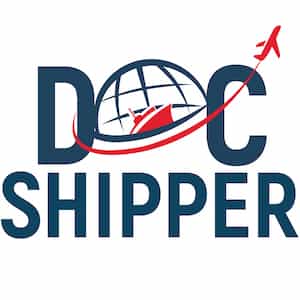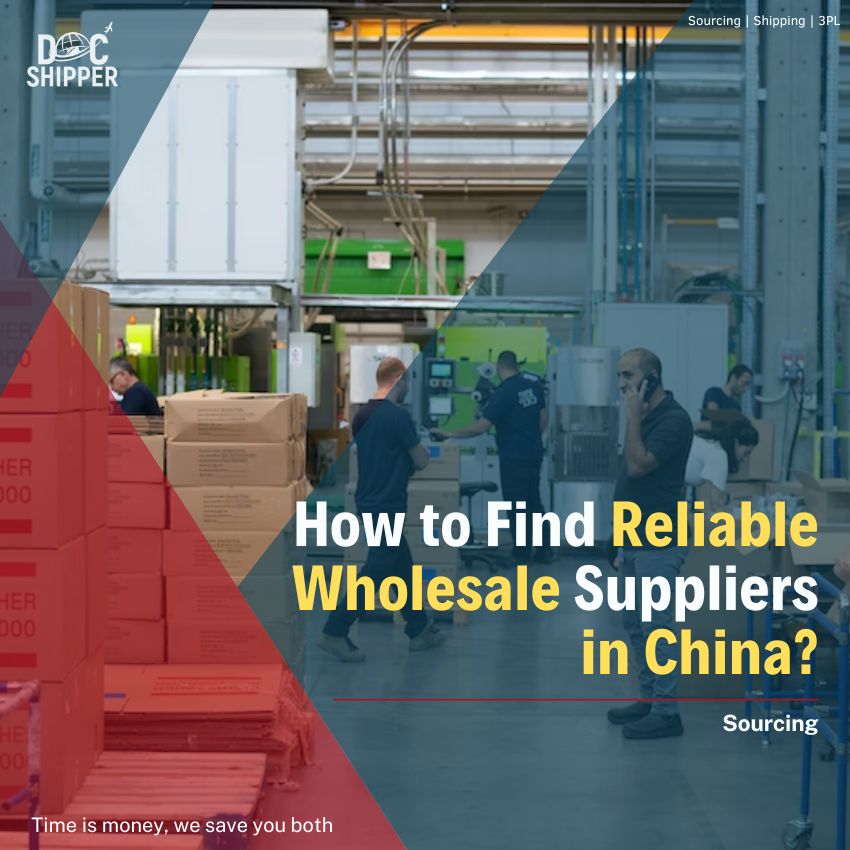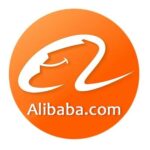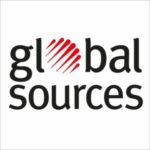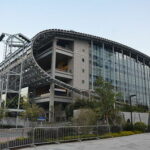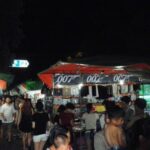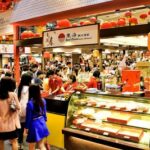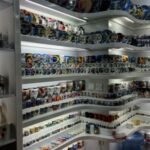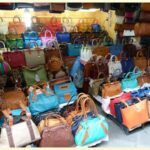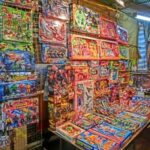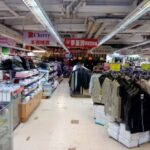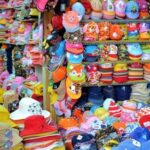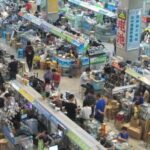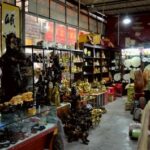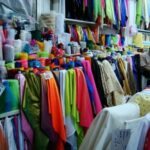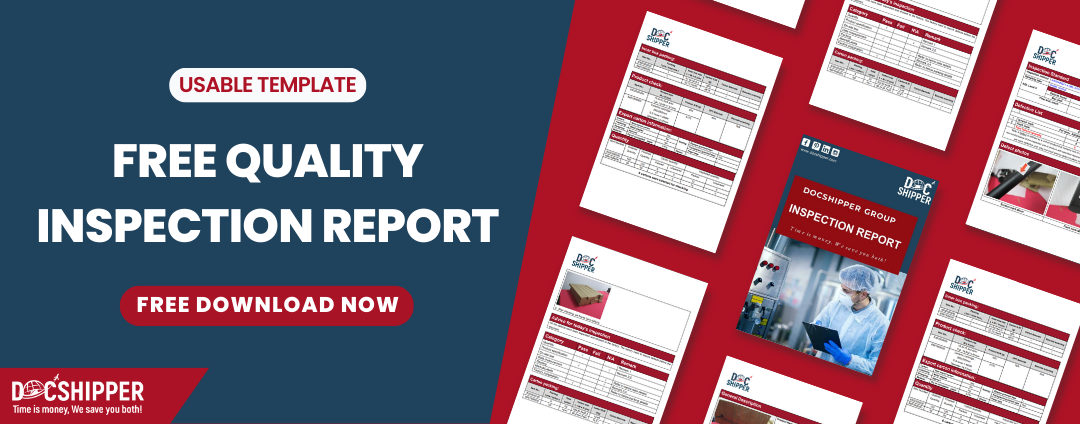In today's global marketplace, China stands as a powerhouse of manufacturing and production, attracting businesses worldwide seeking cost-effective and high-quality products.
Yet, amidst the myriad of opportunities, the key challenge lies in identifying reliable suppliers who can deliver on promises consistently. Navigating this complex landscape requires a strategic approach, encompassing diligent research, due diligence, and effective communication.
In this guide, we'll unravel the essential steps to help you secure trustworthy and dependable suppliers in China, ensuring your business ventures thrive in this dynamic environment.
Find suppliers on Chinese wholesale websites
To find suppliers in China, checking wholesale websites is a great idea and very popular nowadays.
There are many Chinese wholesale websites like Alibaba, 1688.com and many more.
But be careful, like everything, these websites also have negative sides.
Alibaba
Alibaba offers a wide variety of items, and compared to other B2B websites, Alibaba has a disproportionately large number of suppliers.
Many people are still trying to figure out how to tell if the vendor is a manufacturer or a trade company. I advise you to start out slowly and not put too much effort into it. All you need to do is strike a balance between the product's quality and pricing.
You will encounter more profitable suppliers as your firm grows and as you gain more and more expertise working with suppliers.
Alibaba is a great resource for finding suppliers, but there are several myths you should avoid.
The "Gold Supplier" listings on Alibaba are not necessarily the best when searching for suppliers. The truth is that anyone can become a gold supplier on Alibaba if you pay the roughly $2,000 annual charge. The majority of users on Alibaba are gold suppliers. Making this a standard for selecting a reliable supplier is thus a bad idea.
In contrast to Google, Alibaba uses a separate search ranking algorithm. The first provider you find while seeking for a certain product category may not always be a good supplier. Rankings are sometimes impacted by vendors' marketing expenditure.
Always wanted to buy in bulk from Alibaba but didn't know how? We made an article containing every detail about Alibaba to help strengthen your knowledge in that topic as much as possible!
1688.com

1688.com is a famous brand of B2B e-commerce belonging to Alibaba Group. It's just like Alibaba.com, you can find products, suppliers, and factories on the platform. However, the website of 1688 is all in Chinese, which means that this platform is for China's domestic markets.
To use this website, it would be a great idea to use a translator website or the Google Translate extension, which you can find add for free on your Google Chrome web store.
Now after we solved the first challenge, we are moving to the next step - Find your supplier. There are thousands of wholesale products and suppliers in 1688.com. But take in mind that there are fewer suppliers there than on Alibaba. The good thing about that is, the prices are lower on 1688.com
When searching for your supplier, instead of typing, you can just upload a photo in the search bar and all the suppliers that offer it will pop up. Or you can just simply type in the name of your product and search for it. A third method is also to translate the name of your desired product into Chinese, and for your information, this method offers you the largest number of suppliers while searching.
To assure you don’t get scammed, do your research. Check the number of employees the supplier has, make sure it has more than 500 employees. For example, if they have like only 50 employees, it looks like you’re dealing with a trading company. And make sure that the supplier has been around for at least 3 years.
Also, keep in mind that the prices listed on 1866.com are in RMB and not in USD.
You want to know more about 1688.com? We unveiled the most detailed secrets concerning that topic!
DHgate
DHgate is an online retailer that specializes in Chinese wholesale goods.
It is located in Beijing and was founded by its CEO, Diane Wang. Prior to starting DHgate, he established Joyo.com, a consumer buying website that Amazon bought out in 2004.
For small-volume orders, DHgate is a reliable e-commerce sourcing source. This might be viewed as one of DHgate's benefits over Alibaba. You can select specialty products from their selection of products, which is plentiful.
DHgate offers you the opportunity to purchase a small quantity or even just one piece of a selection from a very wide range of products.
On the negative side, the prices are much higher than the ones from Alibaba, as we noticed that they are as high as at least 25% compared to Alibaba.
You are interested in buying from DHgate? We created a guide for you that allows you to use and buy from DHgate with perfection.
Global sources
Global Sources is an international B2B business with its main office in Hong Kong. It was established in 1971 and has more than 49 years of experience in providing goods to suppliers and customers all around the world. They run trade fairs in Asia and offer online and offline supply services similar to Alibaba.
Global Sources and Alibaba don't quite resemble one another, though. The dependability of suppliers and the caliber of the goods they supply is the key distinction between Alibaba and Global Sources.
Suppliers of global sources also typically have greater experience and a better understanding of how to interact with clients.
Global sources vendors typically ask about your company's history, background, and the quantity you order. This is due to their desire to confirm that they are working with the appropriate business partner. When you want to have a long-term business relationship, this is advantageous for both you and the provider.
Global Sources is a good Chinese wholesale site, but is it better than Alibaba? We made a detailed comparison between them!
Find suppliers in trade shows
Another way to find your supplier is through trade shows, there are plenty in China where you can find all types of products.
The Canton Fair (China Import and Export Fair)
The Canton Fair (广交会) is a national fair and is China's biggest trade fair. They feature basically every type of industrial product from electronics to automobiles in Phase 1, consumer goods and gifts in Phase 2, and clothing, medicines, and recreational products in Phase 3. The event is held twice annually, in the Spring and Autumn.
While purchasers from other Asian nations make up the majority of the market, buyers from Europe, the US, and Russia each account for 10% or more of the market. It is intended to be a global event with support in many languages for attendees from 200 different nations.
There is a scheduled session for this autumn, here are the dates for you:
The Autumn Session: October 15–19 2023 (Phase 1), October 23–27 2023 (Phase 2), Oct. 31 – Nov. 4 2023 (Phase 3)
The address of the fair is “China Import and Export Fair Complex, 380 Yuejiang Middle Road, Guangzhou”
The Yiwu Commdities Fair
The Yiwu Trade Fair (义博会) is a permanent fair targeted for small buyers from all over the world looking to buy wholesale products at the lowest prices. The prices are a little lower than at the Canton Fair. In addition to the permanent trade market, many annual exhibitions of various categories of products attract more buyers and exhibitors to Yiwu City.
The International Trade City, also called China Commodities City, or simply Yiwu Market, is the biggest of the Yiwu marketplaces. Up to 70,000 booths and 100,000 vendors from factories from all across China are present there. 43,000,000 square feet, or 4,000,000 square meters, make up its size.
This fair is situated at “Yiwu International Expo Center: No. 59 Zongze Road, Yiwu, Zhejiang”.
East China Fair (ECF)
Since its inception in 1991, 29 successful sessions of the East China Fair have taken place.
With a 126,500 sqm display space, the 29th ECF took place at Shanghai New International Expo Center from March 1 to March 4, 2019.
There were four specialty exhibition areas, including Fashion/Garments, Home Textiles, Consumer Goods, and Art Deco Gifts, each with 6,500 basic booths and 4,000 businesses. Among the 21 nations and regions represented by the more than 550 international exhibitors were Japan, South Korea, the United States, Canada, New Zealand, Germany, Iran, Malaysia, Nepal, Columbia, Western Samoa, Hong Kong, and Taiwan.
A wide range of modern and traditional goods were on show, but the high-tech, well-known local businesses stood out more. 22,757 corporate visitors from 111 countries and regions attended the 29th ECF, together with 16,000 of their Chinese counterparts.
The next session of the East China Fair is planned to be held between March 1 and March 2024, at this address “Shanghai New International Expo Centre(SNIEC), Shanghai, China”
Bauma China — International Trade Fair for Construction Machinery, Building Material Machines, Construction Vehicles, and Equipment
The Bauma Fair (中国国际工程机械,建材机械,矿山机械、工程车辆及设备博览会 o r上海宝马展 for short) is a nationwide trade show for China's construction sector and companies dealing with construction. This trade fair is extremely significant because China by far has the largest building industry.
It is the largest construction trade show in Asia. They offer essentially every kind of building equipment.
This fair is held once every two years, approximately 3000 suppliers are present, 2000 of them are Chinese. The attendance of this fair reaches almost 200 000 people from about 150 countries.
The next session for this fair is planned for 2024 between November 26 and November 29.
You can visit the fair at this address on that date “2345 Long Yang Road, Pudong Area, Shanghai”.
Find wholesale suppliers in Chinese markets
In China, wholesale marketplaces are located in three major cities. They are Yiwu, Guangzhou, and Shenzhen, three big cities. These cities serve as gathering places for local suppliers and manufacturers.
Yiwu wholesale markets
Yiwu International Trade City (义乌国际商贸城)
Yiwu International Trade City is also known as International Trade Market, Yiwu Market, International Trade City, China Commodity City (CCC). The largest wholesale market in the world, the so-called "small commodities", is made up of six interconnected buildings with a sales space that extends for several kilometers. A total of 100,000 suppliers have their items on display across 4 million square meters with 70,000 cabins and more than 200,000 daily visitors.
There are 2,000 separate categories with 40,000 different product types, according to estimates. The wholesale market is divided into five districts.
It has been divided into five districts, for its full categories you can find any product you want here.
- District 1: Toys / Jewelry and ornaments / Porcelain and crystal
- District 2: Suitcases and bags / Umbrella / Working Tools / Electric Products
- District 3: Glasses / Paperware / Beauty and Cosmetics / Lightning and button closure
- District 4: socks / gloves / hats / shoes / clothes / belt / bra and underwear
- District 5: Car and motorcycle parts / Food / Health products
You can find the market on this address: China, Zhejiang, Jinhua, Yiwu, Chouzhou N Rd, 宾王路158号 邮政编码: 322023
International Production Material Market (国际生产资料市场)
There is another large wholesale market in Yiwu that is 1 774 000 square meters.
Its primary area of expertise is machinery and equipment. This market contains 4 floors, each floor with different products, here is a quick look on them:
- first floor: printing and packaging machinery, electrical devices, artificial flowers, accessories
- second floor: food processing, printing and packaging machinery, motors
- third floor: interior decorations, lighting
- fourth floor: leather upholstery.
To check this market by yourself, visit this address “1566 Xuefeng West Road, Yiwu, Zhejiang (雪峰西路1566号)”
Guandong wholesale markets
Baohua Baima Costume Wholesale City, Shenzen (宝华白马服装城)
This market is the place with the biggest number of clothing vendors in Shenzhen, according to statistics.
There are many different types of apparel available, ranging from affordable and low-end to pricey and high-end. In addition to that, there are more than 10,000 styles of clothing being launched everyday here.
This market is a fantastic place to purchase inexpensive clothing, supplies, alterations, etc.
Be careful, as it's simple to get lost in this big, multi-story skyscraper! It might be preferable to bring a Chinese-speaking companion.
This market can be found in this address “G4X9+3QQ, Xinyuan Rd, 东门 Luohu District, Shenzhen, Guangdong Province, China, 518001”
Guihua Gang Leather Bags Market (广州桂花岗皮具箱包批发市场)
We often say that the world’s leather items are in China, Chinese leather articles are in Guangzhou and Guangdong leather products are in Sanyuanli. Guihua Gang's leather bag market is the largest and highest level of the leather wholesale market, as well as the baggage market with the largest sales volume.
The market has collected more than 5,000 brands of leather. There are famous high-end brands such as Marino Orlandi, MARSHAL, Corcodile, Valentino Juden, Valentin Rudy, Napoleoris Dieam, Dissona, etc.
Visit this market here on this address “1333 Jiefang N Rd, Sanyuanli, Baiyun, Guangzhou, Guangdong Province, China, 510499”
Wanling plaza (广州万菱广场)
This place is mainly for wholesale toys, from the first to the sixth floor. In addition to toys, you can also find satisfying gifts on this market. After all, toys are also gifts in a sense.
The search for goods in this fair is a kind of pleasure as if you are entering a wonderful world of fairy tales.
If you wish to visit and discover it by yourself, you can find it here “China, Guangdong Province, Guangzhou, Yuexiu District, 解放南路39号 邮政编码: 510120”
Guangzhou Thirteen Hongs of Canton (广州十三行服装批发市场)
The Hongs of Canton business circle is the most famous wholesale market for clothing in China. It mainly consists of New China Building, Guangyang Wholesale City, etc. There are about 20,000 stands. It closely follows global clothing design trends such as Korean style and European and American show styles.
It should be noted that the market will be closed around 13:00, so it is best to go there early in the morning. More than 95% of the clothes come from manufacturers, which means lower prices and stable quality. There will be a difference of about 10 between the price of taking 1 to 5 pieces and 5 to 10 pieces in the same style.
This market can be found at “113 Heping E Rd, 长堤路购物休闲街 Liwan District, Guangzhou, Guangdong Province, China, 510123”.
Shenzen wholesale markets
Sungang Stationery Toy Gift Wholesale Market (笋岗文具玩具礼品批发市场)
This market is made up of a number of multi-store structures that are dispersed throughout a number of city blocks. They sell toys, office supplies, computer accessories and packaging materials.
There are 3 buildings that contain only toys, really big buildings! Although high-end accessory shops sell wonderful items, holiday decorations are what really bring customers in. They sell gifts that are similar to the toys that are given as Christmas presents.
We advise spending many hours walking through. A section of the market further in features what appears to be a flea market with toys and other items for sale. Christmastime is a great time to visit this market.
You can visit this beautiful market at “China, Guangdong Province, Shenzhen, Luohu District, 宝安北路1025号 邮政编码: 518023”
Huaqiang Bei Electronic World (深圳华强北电子批发市场)
It is the world’s largest electronic market and the wholesale supply center for small and medium-sized enterprises. There are 50 electronic markets in Huaqiang Bei and most of them are engaged in phones. It's said that you can assemble your own phone here by buying all the necessary components.
You can visit this market here “1015 Hua Qiang Bei Lu, Futian District, Shenzhen, Guangdong Province, China, 518028”
Shanghai wholesale markets
Yunzho Curio City
For curio fans in the city, Yunzhou Curio City is the last remaining authentic antiques market.
You may find a vast variety of antique goods in this seven-storey market, including teapots, jade jewelry, coins, and old banknotes, all of which are proudly advertised from hawker stalls.
While the majority of the antiques are real, keep a close eye out for imitations.
It's best to visit on the weekends, when touts swarm the nearby streets, giving the area a nostalgic feel for the long-gone Dongtai Road Antiques Market.
This market is located at “China, Shanghai, Xuhui District, 大木桥路88号 邮政编码: 200031”
South Bund Fabric Market
The best place to buy fabric is in Shanghai South Bund Fabric Market, as the name might imply.
It was opened on April 15, 2006. A broad selection of silk and fabric are available in three air-conditioned stalls. The market combines the top tailors in Shanghai under one roof.
Walk among the mountains of fabric that are ideal for your own custom designs or the many display samples. If you want to sew or would like to have custom-made clothes or home decor done, this is the spot for you. Always remember to haggle for a reasonable price.
If this market is something for you, you can visit it here, “China, Shanghai, Huangpu, 董家渡陆家浜路399号 邮政编码: 200010”
Use sourcing agents to find a reliable supplier
Another way to find a reliable supplier in China is to use a sourcing agent.
What is a sourcing agent?
A sourcing agent collaborates with a business to find low-cost suppliers of items and materials. Simply put, a sourcing agent will assist you in finding the ideal supplier who meets your needs. The following services are offered by sourcing agents:
- Quality Control
- Supplier Selection
- Market analysis
- Price Negotiation
- Shipment Inspection
- Quality Assurance
- Customs Clearance
A sourcing agent may be a single person or a company that works with numerous businesses.
As we said about suppliers the same is true about sourcing agents. Finding a trustworthy sourcing firm can provide a secure supply chain, lower purchase costs, safe delivery, and last but not least, a trustworthy agent in China.
Challenges of sourcing from China
Difficulties in finding a good and legit supplier
Everything begins here. It appears that finding suppliers is required before any importer may source any item from China.
Finding reliable Chinese suppliers can be challenging because so many of them are fake and operate online to deceive unwary importers. The Chinese government grants manufacturers and enterprises with licenses and permits.
Many inexperienced importers are unaware of this. Additionally, these fraudulent providers occasionally present false licenses, and once more, some importers fall for it.
Supplier verification problem
Similar to the first issue, this one has cost many importers time, money, and sweat. Online supplier legitimacy verification is a major concern. Given that many importers conduct their business online, it might be challenging to determine which provider has the required authorizations to complete the supply.
It is a pretty large risk that could put your sourcing process in jeopardy if you don't check the vendor carefully.
Communication Problem
The Chinese vendors are mostly native Mandarin-speaking people.
The fact that many importers prefer to communicate in English makes it extremely difficult for sourcing. Importers face obstacles by the language barrier since they cannot type or speak Mandarin, while suppliers struggle to communicate in English.
Hiring a sourcing agent with good knowledge of the Chinese market is the answer to this problem.
Negotiation problem
Many importers lack the skills necessary to successfully negotiate with Chinese suppliers. Additionally, the minority who do it frequently over negotiate to the point where it compromises the supply's quality standards. While bargaining is encouraged, especially when buying in bulk, it's vital to remember that the supplier needs to make profits, and if you go too far, it might put at risk your sourcing.
Payment problem
Chinese suppliers want to get paid in either Yuan or RMB. Many importers don’t have access to this and this affects their sourcing because the accessibility to the local currency is limited.
Quality inspection problem
It takes more than just placing orders to import something. Other procedures are just as crucial for maximizing sourcing as the actual process itself. And only experts can carry this out.
Not checking the quality of your products before they leave the provider while sourcing from China is a risk. The time, money, and effort lost by not performing a proper research process on your goods might be huge.
How can we help you?
For every challenge named above, DocShipper will make sure that they won’t happen.
With the sourcing services of DocShipper, our sourcing agents will make sure to find you the best and cheapest supplier for your business. We will make sure your needs and demands will be satisfied!
Our sourcing agents will also prevent the existence of a language barrier as we have experts everywhere that have good knowledge of the country and the language. We will make sure that there will be good and clear with the supplier.
Our agents will also negotiate the best deals for your company so you don’t overpay anything, with us, we assure you that you will save money.
We also can take charge of the payment for you, we will pay the suppliers in RMB as they prefer to be paid in their own currency.
DocShipper’s sourcing services can also assure that your products are in good condition if you opt for our quality control service.
How to evaluate a supplier?
Before agreeing to work with a supplier, you or your sourcing agent should him. We have put together some important facts about supplier evaluation.
Set your metrics
Before choosing providers, decide on your KPIs based on the most important elements of the business.
You might keep an eye on measures like the percentage of on-time delivery, the average cost, or the number of reported product problems. All of these performance indicators can be used to contrast different vendors.
To get a better idea of how receptive suppliers might be to changing business objectives, you can also consider additional information, such as if they have readily available feedback channels and prior customer evaluations.
Identify potential suppliers
After gathering metrics, you can make a list of the numerous suppliers your business might need.
These can be companies that create items, deliver goods, provide office supplies, or offer raw resources. By ranking each supplier according to priority, you can identify which one might be the most important to the company's success. Based on this classification, you can determine the amount to which you might evaluate each.
Set a process for evaluation
Setting up a thorough review process could help you select a service and maintain track of their performance. Consider who in the team can offer advice on how to evaluate each factor.
Examples include sales representatives, supply chain employees, and members of the quality assurance department who can judge the competence and reliability of each provider.
Pick the most effective method for evaluating suppliers once you've put together an evaluation team. Consider scheduling regular meetings with internal teams to evaluate the vendor and discuss their results with leadership before reporting findings to the supplier.
Steps to negotiate with a Chinese supplier
Don’t worry, it’s possible to negotiate with Chinese vendors. In fact, if you know how to do it properly, it can be a pleasurable and successful experience.
Do your research
Before you start negotiating with any supplier, you must investigate the market, product, and supplier, as well as personal wants and objectives. Here are some questions you should ask yourself:
- What is the typical market price for the item you want to buy?
- What are the product requirements you need in terms of quality standards, packaging, etc.?
- Which companies are the primary rivals of the provider you are considering?
- What are the advantages and disadvantages of the potential supplier?
- What are your spending limits, order size, deadline for delivery, payment methods, etc.?
You will have a clear understanding of what you want and what you can offer if you do your research. Additionally, you will be able to compare various vendors and their offers logically and objectively.
Develop a relationship of trust
Dealing with Chinese vendors involves more than simply figures and facts. It also entails establishing a rapport and mutual trust with them. Long-term ties and reciprocal advantages are valued by Chinese suppliers. If they like and trust you, they are more likely to give you a better deal.
To develop trust, you should use a good translator to assure clear communication.
You also should show interest in their company, like ask questions and give compliments about how they do their work.
One major thing you should do is to respect their culture, don’t bring up sensitive topics when you talk with them like politics or religion.
You also should be polite and professional, don’t change your mind frequently and don’t cancel orders without a reason. Don’t be rude or aggressive, don’t make threats and call them by titles like sir or mister. Also don’t demand things that are very hard to realise.
And last but not least, be honest with them, like in everything in our life, honesty is a major factor.
Don’t negotiate the price only
Although price matters, it's not the sole element that defines the worth of a transaction. Additionally, you should bargain over issues like price, quantity, timing of delivery, terms of payment, warranties, after-sales services, etc.
You can make more room for flexibility and compromise by haggling over several different issues. Additionally, you can weigh the benefits and drawbacks of each factor to choose the best course of action for everybody concerned.
Confirm everything in writing
Make sure to get the supplier's written confirmation of everything after each negotiation session.
Ask them to provide a written or electronic summary of what you have already consented to. You can avoid confusion or disagreements in the future by doing this.
Before concluding the sale, you need also to create a legal contract with the supplier. All should be stated in the contract.
FAQ | How to Find Reliable Suppliers in China?
What are some red flags to watch out for when dealing with suppliers in China?
1. Lack of Transparency: Suppliers unwilling to share key information about their manufacturing processes, materials, or certifications could indicate potential quality or compliance issues.
2. Unrealistically Low Prices: Extremely low quotes compared to market norms may signal substandard materials, production methods, or hidden costs that could impact product quality.
3. Inconsistent Communication: Difficulty reaching suppliers, frequent delays in responses, or vague answers could indicate potential challenges in maintaining a reliable partnership.
4. Limited Payment Options: Suppliers insisting on using only certain payment methods or offshore accounts may raise concerns about financial security and fraud prevention.
How can I make sure that my supplier's client reviews are real ?
There aren't so many solutions to do so. Though, you can for sure ask your supplier a contact with those clients, and ask them directly.
If your supplier isn't willing to share these contacts, you might start wondering if he's serious.
How can I communicate effectively with Chinese suppliers?
1. Clear and Detailed Specifications: Provide precise product specifications, quality standards, and technical details to avoid misunderstandings and ensure your expectations are met.
2. Cultural Sensitivity: Show respect for Chinese customs and etiquette, building a positive rapport through polite language and patience, while addressing concerns directly but diplomatically.
3. Consistent Communication: Maintain regular and open dialogue using clear written communication, such as emails or messaging apps, to foster understanding and trust.
4. Visit in Person: Whenever possible, consider visiting the supplier's facility to establish a stronger relationship, assess their capabilities, and gain firsthand insights into their operations.
Info DocShipper : Did you enjoy this article? You would probably like these following articles :
DocShipper Advise : We help you with the entire sourcing process so don't hesitate to contact us if you have any questions!
- Having trouble finding the appropriate product? Enjoy our sourcing services, we directly find the right suppliers for you!
- You don't trust your supplier? Ask our experts to do quality control to guarantee the condition of your goods!
- Do you need help with the logistics? Our international freight department supports you with door to door services!
- You don't want to handle distribution? Our 3PL department will handle the storage, order fulfillment, and last-mile delivery!
DocShipper Sourcing | Procurement - Quality control - Logistics
Alibaba, Dhgate, made-in-china... Many know of websites to get supplies in Asia, but how many have come across a scam ?! It is very risky to pay an Asian supplier halfway around the world based only on promises! DocShipper offers you complete procurement services integrating logistics needs: purchasing, quality control, customization, licensing, transport...
Communication is important, which is why we strive to discuss in the most suitable way for you!
